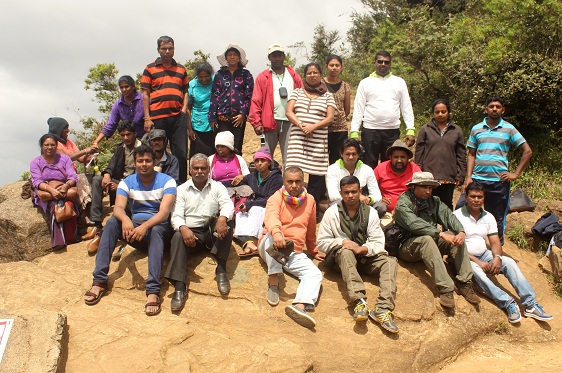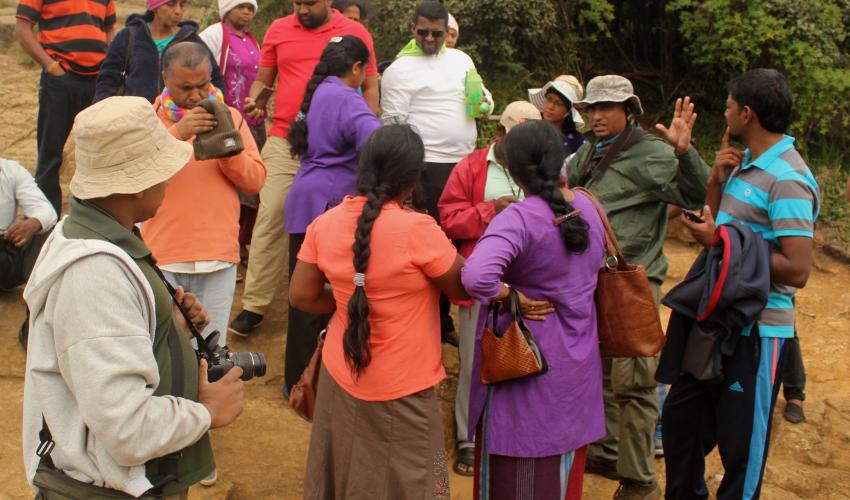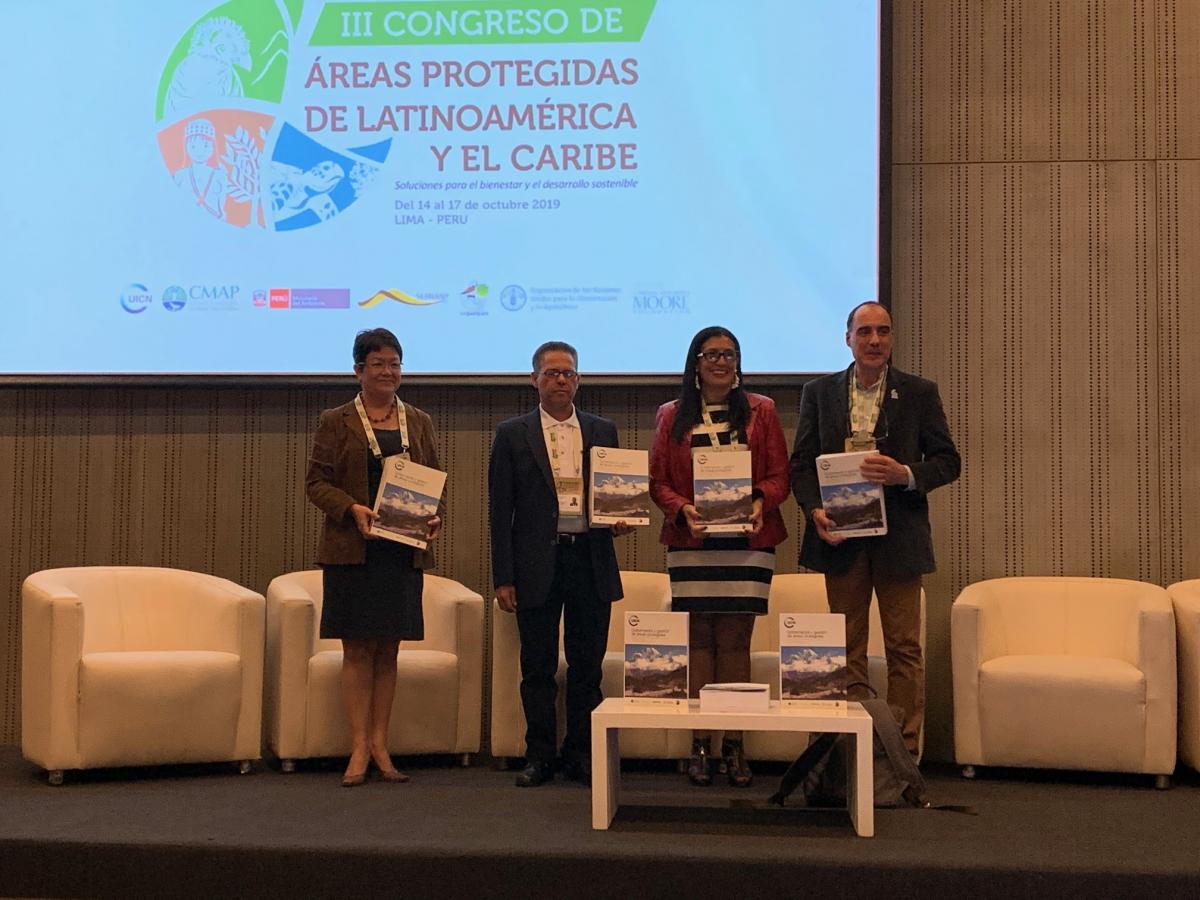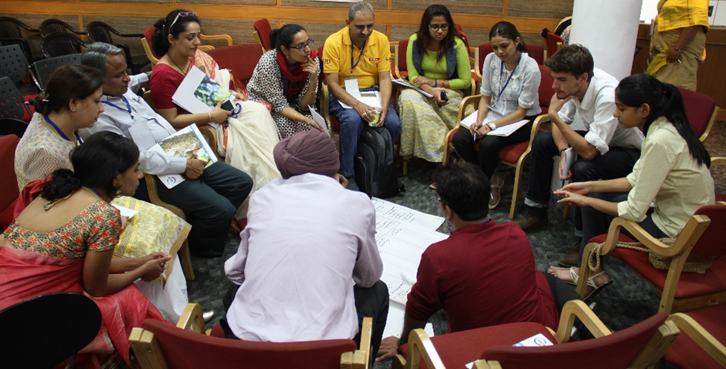Empowering schools on nature: Training of teachers on highland ecosystems
Engaging schools and school teachers on the value and role of natural resources is one of the best investments towards conservation and sustainable management of natural resources.

Workshop participants at Horton Plain National Park
Photo: Naalin Perera, IUCN Sri Lanka
In Sri Lanka, the highland ecosystem plays a critical role. Most of the rivers in the country originate in the central highlands and flow into the Indian Ocean at locations around the country. The highland forests and ecosystems contribute significantly to safe drinking water supply, irrigation and agriculture, industry, power generation, urban services and biodiversity maintenance. This important ecosystem is central to the life of all Sri Lankans. Better understanding and appreciation of the ecosystem services provided by highlands helps not only as an educational exercise but also as an investment towards attracting and encouraging future generations to value and conserve natural resources.
In this context, the IUCN Sri Lanka Country Office, with financial support from HSBC, collaborated with Badulla District Central Environment Authority (CEA) office to conduct a training workshop on Highland Ecosystems with Special Emphasis on Horton Plains National Park, June 16-17, 2016. The workshop was held at the Ohiya Centre managed by the Uva Management Development Institute and Horton Plains National Park.
Seventeen school teachers and five CEA officers participated in the workshop. The teachers who participated were responsible for implementing the CEA led National Environment Pioneer Programme in their schools. The Environment Pioneer Programme engages students on environment projects and also teaches them to assess and appreciate environment services.
Participants gained thorough knowledge of biodiversity conservation, highland ecosystems of Sri Lanka, the importance of highland ecosystems in watershed services, biodiversity research methods for school children, fauna and flora of the Horton Plains National Park and the history of the Horton Plains National Park. Students benefitted greatly from the knowledge and experience of the IUCN-selected team of ecologists. A field excursion was held within the Horton Plains National Park in order to give participants first-hand experience of plants, animals and ecosystems which can be found in Horton Plains.
 Photo: Naalin Perera, IUCN Sri Lanka
Photo: Naalin Perera, IUCN Sri Lanka
Encouraging feedback was received from the participants at the end of the workshop, highlighting the value of more training for the same schools, and for upscaling the approach to other areas. Teachers promised to share their new knowledge with students, especially school environment leaders.
The training programme was a part of the HSBC-sponsored project on Enhancing Educational and Awareness Programmes on the Central Highlands, A UNESCO World Heritage Serial Property in Sri Lanka. The Department of Wildlife Conservation and the Forest Department are the two main counterpart government agencies of this project.



